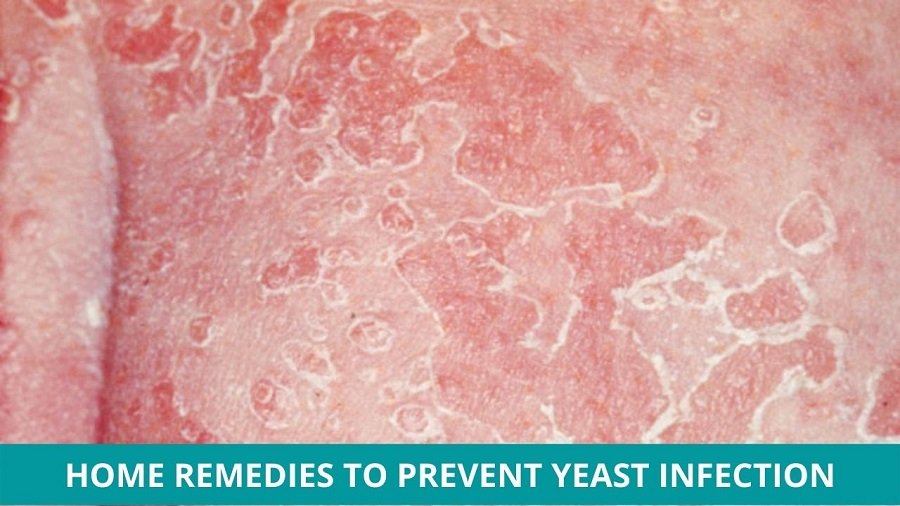What is Yeast Infection?
Candidiasis, commonly known as Vaginal Yeast Infection, is fungal by nature and causes intense itching, discharge, and irritation of the vulva (the vaginal tissues), and the vagina.
Bacteria and yeast cells are generally present in a healthy vagina. It is the imbalance between the yeast and bacteria that causes the infection due to the multiplication of the yeast cells, which further leads to swelling, itching, and irritation.
Now that we understand what exactly does yeast infection means and the background to it, let us move forward to deal with the causes, symptoms, and Treatment of Yeast Infection.
Causes of Yeast Infection
As explained above, the vagina naturally contains a mix of yeast, (which includes candida), and bacteria, which is in a balanced form. The lactobacillus bacteria keep a check on the overgrowth of candida. But sometimes, the balance is disturbed due to an overgrowth of candida, or the penetration of the yeast cells deeper into the vagina, which begins to cause irritation, itching, and swelling, which are all the signs and symptoms of a Vaginal Yeast Infection.
The imbalance in the vaginal composition that leads to the overgrowth of yeast cells may generally be attributed to the following reasons:
- Excessive Stress
- During Pregnancy
- Hormonal disturbance during the menstrual cycle
- Antibiotics that interfere with the amount of Lactobacillus (that controls the overgrowth of yeast cells)
- A weak immune system
- Uncontrolled diabetes
Most yeast infections are caused by Candida Albicans and can be easily cured. There are other kinds of Candida fungus that may also lead to yeast infections that are severe in nature and might require serious treatment.
Symptoms of Yeast Infection
Depending upon the intensity of the infection, symptoms of yeast infection may range from mild to moderate. Few common signs and symptoms of this fungal infection include:
- Vaginal pain and soreness.
- Rashes in and around the vagina.
- Irritation and itching in and around the vagina and the vulva.
- Swelling and redness of the vulva.
- Excessive burning during intercourse or while urinating.
- Thick, whitish-yellow vaginal discharge which is generally odor-free and has a cottage cheese-like appearance.
- The discharge may also be watery sometimes.
The chances of developing a complicated yeast infection increase in the following scenarios:
- If the infection is caused by a less typical kind of fungus.
- Weak immune system due to specific medications or in conditions such as HIV.
- If you’re prone to get four or more yeast infections per year.
- In cases of pregnancy or uncontrolled diabetes.
Prevention of Yeast Infection
Certain preventive measures can reduce your chances of getting a yeast infection. These include:
- Underwear with a cotton crotch can be comfortable and prevent the chances of an infection.
- Avoid wearing too tight-fitted intimate clothing.
- Very hot baths and tubs must be avoided.
- Scented feminine products such as intimate washes, tampons, pads, and bubble baths must be kept away from.
- Douching must be avoided as it removes normal bacteria which helps in maintaining the vaginal balance.
- Avoid wearing wet clothes such as swimsuits or workout clothes that are sweaty for too long time periods.
Treatment of Yeast Infection
Yeast infections are usually harmless and can be easily treated by taking a few precautions and home remedies, which are listed below for your reference:
- Yogurt: Yogurt is considered a probiotic as it contains live bacteria, Lactobacillus, which is the same bacteria that maintain the natural balance between yeast and bacteria composition of a healthy vagina. Yogurt helps in treating the overgrowth of yeast cells which causes imbalance and results in yeast infection.
- Boric Acid: Boric Acid has effective antiseptic properties that help in the treatment of yeast infection. But the acid can be toxic in large amounts thereby a strict check must be ensured. Pregnant women mustn’t use it in any kind or form.
- Coconut Oil: Besides many other health benefits and properties, coconut oil also contains antifungal properties that help in treating yeast and various other kinds of fungal infections. Pure, organic oil may directly be applied over the infected skin for beneficial results.
- Tea Tree Oil: It is an effective essential oil that also contains anti-fungal and anti-bacterial properties. It must be applied over the infected skin in combination with a carrier oil such as coconut oil to observe effective results.
- Apple Cider Vinegar: This vinegar when added to lukewarm water in half-cup measures, for about 20 minutes before the bath, this bathing solution helps in eliminating any harmful microorganisms such as excessive yeast cells that cause the yeast infection.
Conclusion
Yeast infections in women and children can be easily cured and treated if diagnosed at the right time. The treatment and preventive measures discussed in the article are sure-shot techniques to effectively manage yeast infections.
At IAFA® we not only provide such valuable content for sufferers to treat various infections and allergies at home but also give personalized sessions and consultancy to treat various conditions and problems. Our medical experts provide valuable assistance in treating your problems by providing custom diets and ayurvedic and herbal treatment measures. Contact us at IAFA® to book your appointment with our medical experts.







